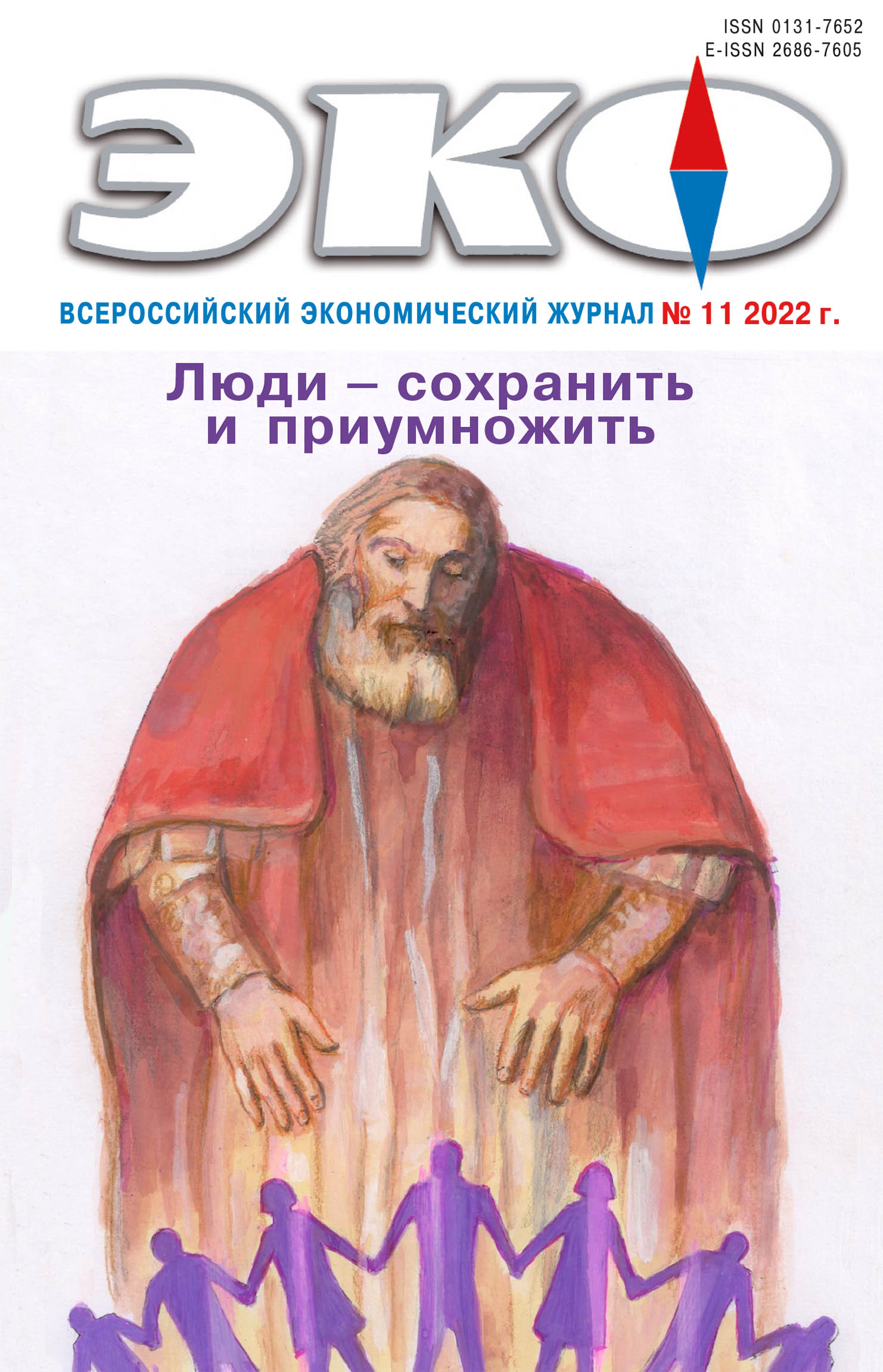People - Preserve and Grow
Human capital of the Republic of Tuva: Future Specialists of Higher and Secondary Qualifications
Published 2022-11-07
Keywords
- Human capital; higher education; secondary vocational education; school graduates; Tyva Republic
How to Cite
1.
Oidup Т. Human capital of the Republic of Tuva: Future Specialists of Higher and Secondary Qualifications. ECO [Internet]. 2022 Nov. 7 [cited 2026 Feb. 6];52(11):23-39. Available from: https://ecotrends.ru/index.php/eco/article/view/4528
Abstract
The paper discusses the formation of human capital of the Tyva Republic in terms of its qualitative renewal with new specialists. The recruitment mostly depends on its own resources, on school graduates and their choice: higher or secondary vocational education, place of further residence and employment. Based on statistical data and forecast calculations, it has been established that the trend of increasing popularity of secondary vocational education in the country is also present in Tyva. The analysis of the data of sociological surveys conducted in 2010 and 2021 using the same methodology has shown changes in the professional values of graduates and their motives for choosing future professions. The negative trend is an increase in migration attitudes among all graduates, regardless of the type of education and profession they would like to pursue. The share of graduates planning to stay and work in the republic has halved. Thus, in 5–7 years, if today’s graduates are able to realize their intentions to leave for other regions of the country, the human capital of the republic will miss more than half of the possible new qualified specialists, both with higher and secondary education.References
- Балакина Г. Ф., Анайбан З. В. Современная Тува: социокультурные и этнические процессы. Новосибирск: Наука. Сиб.отд., 1995. С. 68–69.
- Балакина Г. Ф., Кылгыдай А. Ч. Этнорегиональные модели адаптации к рынку труда в Туве. Кызыл: ТувИКОПР СО РАН, 2015. 160 с.
- Голенкова З. Т. и др. Социально-стратификационные процессы в Республике Тыва / Отв. ред. З. Т. Голенкова, Ю. В. Голиусова, П. Е. Сушко. М. – Кызыл: ФНИСЦ РАН, 2020. 128 с. DOI: 10.19181/monogr.978–5–89697–332–4.2020
- Городское население Тувинской АССР / Отв. ред. В. И. Бойко. Новосибирск: Наука, 1981, 223 с.
- Константиновский Д. Л., Попова Е. С. Среднее vs высшее // Мир России. Социология. Этнология. 2020. Т. 29. № 2. С. 6–26. DOI: 10.17323/1811–038X-2020–29–2–6–26
- Костюк В. Г., Траскунова М. М., Константиновский Д. Л. Молодежь Сибири: образование и выбор профессии. Новосибирск: Наука, 1980. 192 с.
- Кылгыдай А. К.Ч., Ойдуп Т. М. Профессиональная ориентация выпускников школ в Республике Тыва // Социологические исследования. 2020. № 4. С. 149–153. DOI: 10.31857/S013216250009162–1
- Ламажаа Ч. К., Валиахметов Р. М., Самба А. Д.-Б. Проблемное поле исследований человеческого потенциала Тувы: обзор литературы и мнения экспертов (2020–2021) // Новые исследования Тувы. 2022. № 2. С. 6–19. DOI: https://www.doi.org/10.25178/nit.2022.2.1
- Молодежь Тувы. Социальный портрет / З. В. Анайбан, В. С. Золототрубов, В. А. Кочергин и др. Новосибирск, 1988. 194 с.
- Очерки социального развития Тувинской АССР / Отв. ред. Ю. Л. Аранчын. Новосибирск: Наука, 1983. 262 с.
- Vorontsova I. P., Semenova А. R., Vitkovskaya L. K., Drobyshev I. A. (2020) Evaluation of Human Capital in the Macroregion (on the Example of the Yenisey Siberia). Journal of Siberian Federal University. Humanities & Social Sciences. No. 13(11). Pp. 1808–1818. DOI: 10.17516/1997–1370–0686

